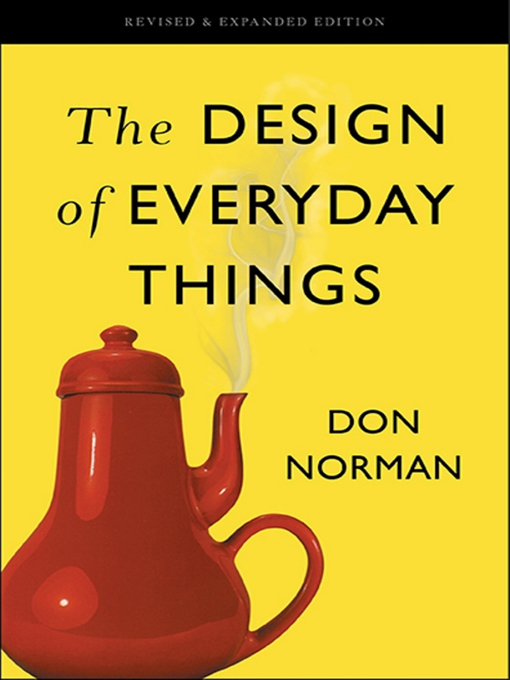Even the smartest among us can feel inept as we fail to figure out which light switch or oven burner to turn on, or whether to push, pull, or slide a door.
The fault, argues this ingenious — even liberating — book, lies not in ourselves, but in product design that ignores the needs of users and the principles of cognitive psychology. The problems range from ambiguous and hidden controls to arbitrary relationships between controls and functions, coupled with a lack of feedback or other assistance and unreasonable demands on memorization.
The Design of Everyday Things shows that good, usable design is possible. The rules are simple: make things visible, exploit natural relationships that couple function and control, and make intelligent use of constraints. The goal: guide the user effortlessly to the right action on the right control at the right time.
The Design of Everyday Things is a powerful primer on how — and why — some products satisfy customers while others only frustrate them.
-
创作者
-
出版商
-
发布日期
2013年11月5日 -
格式
-
OverDrive Read
- ISBN: 9780465072996
-
EPUB电子书
- ISBN: 9780465072996
- 文件大小: 11758 KB
-
-
语言
- 英语
为什么有借阅限制?
×可供借阅情况可因图书馆的预算在全月内有所变动。 您仍然可以将作品设置为预约,作品可再次借阅后,会自动立即处理您的预约。
以下设备不支持此作品的Kindle电子书格式:
×配音电子书
×本电子书的OverDrive Read格式有专业旁白,当您在浏览器中阅读时同步播放。 在此处了解更多信息。
